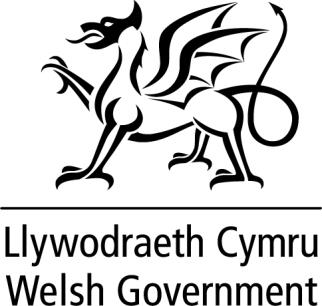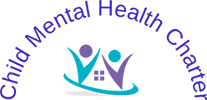Grŵp Iechyd a Gwasanaethau Cymdeithasol
Health and Social Services Group

Helen Clark
Campaign Manager
Child Mental Health Charter Campaign
5 January 2021
Dear Ms Clark
Thank you for your e-mail of 21 July to Vaughan Gething MS, Minister for Health and Social Services asking about Welsh Government’s plans for the mental health needs of children. I have been asked to reply and must apologise for the delay – the Welsh Government has received an unprecedented amount of correspondence regarding the pandemic and I trust you will understand why we have not replied sooner.
Ensuring children and young people with emotional health and wellbeing problems (both existing and as a result of the current Covid19 pandemic) receive access to support and treatment in a timely and appropriate manner is a key priority for the Welsh Government. To support this, we are taking forward a range of activity:
- We are continuing to take a broad approach to improve the mental health of young people from prevention and early intervention through to improving access to specialist services. This written statement will provide more details.
- We positioned all age mental health services as ‘essential’ services during the pandemic. This means that whilst services are affected and service models have had to adapt, we have expected a safe and sustainable response for individuals who need to access mental health support during this period.
- We have worked with health boards to develop a recovery plan for all age mental health services. This will enable us to learn from the innovative work in response to the pandemic and to prepare to meet mental health needs for children and young people during the post pandemic phase.
- The new Together for Mental Health Delivery Plan 2019-2022 published in January 2020 outlines the key priority areas and actions to be taken over this period. The plan was reviewed in light of Covid-19 to consider whether there is need to re-prioritise actions, including those relating to children and young people. A version for young people and an easy read version has been produced. A link to the Delivery Plan is attached: Here
- We have also produced the Young Person’s Mental Health Toolkit which links young people, aged 11 to 25 to websites, apps, helplines, and more to build resilience across six categories; anxiety, low mood, keeping active and healthy, bereavement, coronavirus information, and crisis support. The simple design enables users to take control of their mental health through a medium that suits them, with information, self-help, and advice about how to seek further support embedded throughout. A link to the Toolkit is attached: Here
- Ministers consider supporting the emotional and mental wellbeing of children and young people as integral to tackling coronavirus. We have announced a range of support for learners in the current year, including an additional £1.252m of funding for school counselling, £600,000 to deliver universal and targeted wellbeing interventions for learners; £450,000 to train teachers and other school staff in mental health issues; and £466,500 to provide age appropriate support for younger children. This is part of a wider package of £5m support agreed by the Minister for Education and Minister for Health as part of our whole school approach to emotional and mental wellbeing.
We believe it is important for young people to receive the support they need at an early stage and as such investment has been given to our whole school approach. The approach is looking at how schools and other agencies such as CAMHS meet the needs of young people and enable them to stay engaged in their education. Our aim is to ensure schools across Wales are able to develop consistent plans to meet the emotional and mental health needs of their students. This includes developing teacher training modules on child development, mental health and neurodiversity to ensure teachers are able to spot the early signs of developing problems in the classroom and know how and when to refer on to specialist services when required.
Our CAMHS in-reach pilot is one way in which the NHS is supporting schools to support children and young people. CAMHS professionals are going into schools to provide help, advice, training and guidance. Initial findings suggest the pilot is bringing real benefits to the schools involved. The final pilot evaluation will be published in March at which point Ministers will decide whether and how best to roll out the pilots across all-Wales.
Alongside our whole school approach additional investment and work has taken place to ensure NHS services improve. Local primary mental health support services (LPMHSS) have been developed across Wales which provide support for people with low level mental health problems including those with anxiety and depression and can provide assessment, intervention and signposting. The service can access CAMHS services and refers to CAMHS to offer support to people with increased complexity.
The Welsh Government is fully committed to improving services for autistic people and through the Autism Strategic Action Plan published in 2016 is providing significant funding to develop services. Children’s neurodevelopment services are now in place in every health board. Their role is to assess and diagnose neurodevelopmental conditions, including autism for people under the age of 18 years. For adults, Integrated Autism Services (IAS) are now available in each region providing autism assessment, diagnosis and support services, including support, advice and training for parents and carers. The IAS works in partnership with other organisations to support parents and carers of children with Autism Spectrum Disorders (ASD). You may find the information available through the link below a helpful resource families you are in contact with: autismwales.org/en/
To strengthen autism services we have recently consulted on a statutory draft Code of Practice on the delivery of autism services. We are currently considering the responses to the consultation and will be publishing a consultation report early in 2021. The Code will set out our expectations on local authorities and health boards around assessment and diagnosis, care and support, awareness raising and training and arrangements for planning and monitoring services.
I hope my response has been helpful.
Yours sincerely,
Richard Morgan Tîm Business y Llywodraeth a Corfforaethol / Government and Corporate Business Team Yr Adran Iechyd a Gwasanaethau Cymdeithasol / Department for Health and Social Services
